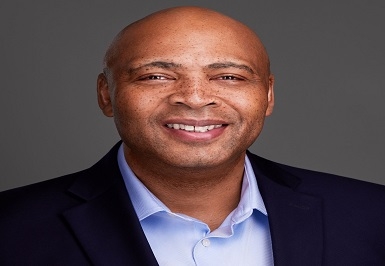.
 C.H. Robinson CEO Dave Bozeman
C.H. Robinson CEO Dave BozemanC.H. Robinson’s new CEO Dave Bozeman will be putting all of his knowledge in global supply chain and logistics management to use upon taking the helm of the company June 26.
The former Ford executive is stepping into the top job at the Minnesota-based brokerage following multiple rounds of layoffs and other cost-cutting moves. His track record of managing businesses through various economic cycles was a consideration in his selection, the company said.
Experts suggest Bozeman’s experiences may be the catalyst the company needs to provide a new direction. Supply chain academics Peter Lukszys, of the University of Wisconsin-Madison; Jason Miller, of Michigan State University; and Jonathan Phares, of Iowa State University, shared their perspectives with Transport Dive in emails last week.
What do you believe should be Bozeman’s top priorities?
Phares: In C.H. Robinson’s last earnings release, they mentioned that both major segments (North American freight and global forwarding) took huge hits. Sales dropped significantly and operating expenses didn’t drop enough in these segments. Bozeman will need to take a two-pronged approach to recoup business and to manage expenses.
A greater focus on process may be the path forward to manage operating expenses. The path to growing revenue will be more challenging. Freight rates are soft in C.H. Robinson’s markets and growing sales require a lot of effort and expense.
Lukszys: It will be interesting seeing Bozeman’s initial priorities. I would look for him to leverage his experiences particularly in truckload, network design and enterprise systems.
Miller: While it appears that we are likely approaching a trough in the current freight recession based on DAT Freight & Analytics’ spot market data, it is critical for C.H. Robinson to find ways to both maintain existing key customer business as we move through this cycle.
What would you say are the strengths Bozeman brings to the CEO role?
Phares: Bozeman’s manufacturing experience should aid him in improving C.H. Robinson’s operations. Caterpillar is a strong process company. If Bozeman can bring the process-focus to C.H. Robinson, he may be able to improve efficiency without relying solely on cost-cutting.
Bozeman’s time at Amazon Transportation Services gives him transportation experience. His responsibility for middle-mile freight transportation and Amazon’s freight brokerage operation. This experience transfers directly to C.H. Robinson’s business and working with Amazon’s tech innovations will be helpful as Bozeman leads C.H. Robinson through their digital transformation.
The companies Bozeman has worked for are customer-focused, so I’m sure that will translate as well.
Lukszys: He spent much of his career inside very large, complex manufacturing supply chains as well as at Amazon, bringing C.H. Robinson a valuable customer-oriented perspective.
Why is Bozeman the right leader for C.H. Robinson today?
Phares: Bozeman is a tech-forward leader, which is what C.H. Robinson needs as it struggles to transform its technology offerings. However, I don’t know if Bozeman has experience building a tech-forward culture where it may not already exist. His overall portfolio does seem to be a good fit for C.H. Robinson.
Lukszys: Bozeman’s hire as CEO is timely. C.H. Robinson and its competitors have been challenged dealing with softening freight demand as shippers continue to destock inventories.
What do you think Bozeman’s long-term focus as CEO should be?
Phares: Bozeman will need to usher C.H. Robinson’s digital transformation to completion. Digital freight brokerage is a congested market. While I don’t think it will unseat typical brokerage, it will make brokerage faster and more accessible. It’ll be important for brokers like C.H. Robinson to become digital players to defend market share. C.H. Robinson is number one in the U.S., but history is full of massive incumbents failing in the face of disruptions.
Miller: Operational efficiency and finding ways to maximize revenue per employee given freight rates and volumes are likely to remain depressed for some time. For example, most folks are now anticipating a weak peak season for holiday imports, coupled with manufacturing activity remaining below levels this time last year.